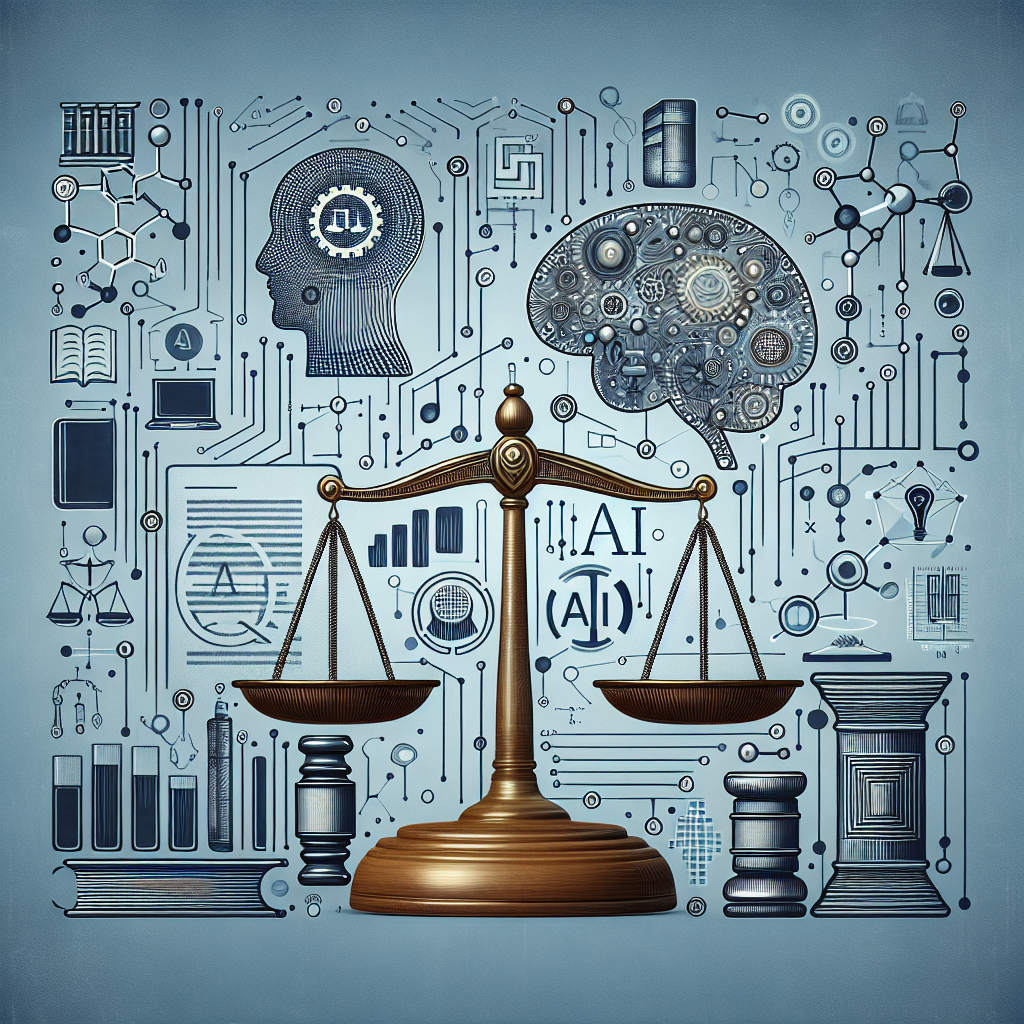Artificial Intelligence (AI) has been making significant advancements in various industries, and the legal sector is no exception. AI is revolutionizing legal data analysis and decision-making processes, helping lawyers and legal professionals to streamline their workflows, improve efficiency, and make more informed decisions.
AI technology has the capability to analyze large volumes of legal data at a speed and accuracy that is impossible for humans to achieve. This allows legal professionals to sift through vast amounts of information quickly and efficiently, saving time and resources. AI-powered tools can review contracts, case law, and other legal documents, extract relevant information, and provide insights that can help lawyers build stronger cases or negotiate better deals.
One of the key areas where AI is making a significant impact is in legal research. Traditionally, legal research involves hours of manual reading and analysis of case law, statutes, and regulations. AI-powered tools can now automate much of this process, providing lawyers with relevant case law and legal precedent in a fraction of the time it would take a human researcher. This not only saves time but also helps lawyers to make more informed decisions based on a comprehensive analysis of legal data.
AI is also being used to assist in decision-making processes within the legal industry. By analyzing historical data and patterns, AI can help predict the outcomes of legal cases, allowing lawyers to better assess the risks and potential outcomes of their cases. This predictive analysis can help lawyers to develop more effective legal strategies and make more informed decisions on how to proceed with a case.
Furthermore, AI can help in the drafting of legal documents by providing templates, suggestions, and automating repetitive tasks. This can help lawyers to draft documents more efficiently and accurately, reducing the risk of errors and ensuring that legal documents comply with relevant laws and regulations.
Overall, AI in legal data analysis and decision-making is transforming the legal industry by improving efficiency, reducing costs, and enabling legal professionals to make more informed decisions. However, as with any technology, there are also challenges and concerns associated with the use of AI in the legal sector.
One of the main concerns surrounding AI in legal data analysis and decision-making is the issue of bias. AI algorithms are only as good as the data they are trained on, and if the data is biased or incomplete, the AI system may produce biased results. This can have serious implications in the legal sector, where fairness and impartiality are critical. Legal professionals must be aware of the potential for bias in AI systems and take steps to mitigate these risks.
Another challenge is the issue of transparency and accountability. AI systems can be complex and opaque, making it difficult to understand how they arrive at their decisions. This can be a problem in the legal sector, where decisions must be justified and explained to clients, judges, and other stakeholders. Legal professionals must be able to explain how AI systems are being used and ensure that they are accountable for the decisions made by these systems.
Despite these challenges, the potential benefits of AI in legal data analysis and decision-making are significant. By harnessing the power of AI technology, legal professionals can improve efficiency, reduce costs, and make more informed decisions. As AI continues to advance, it is likely that its role in the legal sector will only grow, helping to transform the way legal services are delivered.
FAQs:
Q: How is AI being used in legal research?
A: AI is being used in legal research to automate the process of analyzing case law, statutes, and regulations. AI-powered tools can review vast amounts of legal data quickly and efficiently, providing lawyers with relevant information and insights to help them build stronger cases or negotiate better deals.
Q: What are the benefits of using AI in legal data analysis?
A: The benefits of using AI in legal data analysis include improved efficiency, reduced costs, and more informed decision-making. AI technology can analyze large volumes of legal data at a speed and accuracy that is impossible for humans to achieve, helping legal professionals to sift through information quickly and make better decisions.
Q: What are the challenges of using AI in legal decision-making?
A: Some of the challenges of using AI in legal decision-making include issues of bias, transparency, and accountability. AI algorithms are only as good as the data they are trained on, and if the data is biased or incomplete, the AI system may produce biased results. Additionally, AI systems can be complex and opaque, making it difficult to understand how they arrive at their decisions.
Q: How can legal professionals mitigate the risks of bias in AI systems?
A: Legal professionals can mitigate the risks of bias in AI systems by being aware of the potential for bias, ensuring that the data used to train AI algorithms is representative and unbiased, and monitoring the results of AI systems to identify and address any biases that may arise.
Q: What is the future of AI in legal data analysis and decision-making?
A: The future of AI in legal data analysis and decision-making is likely to continue to grow and evolve. As AI technology advances, legal professionals will have access to more powerful tools and insights that can help them streamline their workflows, improve efficiency, and make more informed decisions. AI is poised to transform the legal industry, helping to deliver better legal services to clients and improve outcomes for all stakeholders.

